

Cyber War: The Next Threat to National Security and What to Do About It – April 10, 2010 by Richard A. Clarke
Click here to read our full book review.
Former presidential advisor and counter-terrorism expert Richard A. Clarke sounds a timely and chilling warning about America’s vulnerability in a terrifying new international conflict. Cyber War is a powerful book about technology, government, and military strategy; about criminals, spies, soldiers, and hackers. It explains clearly and convincingly what cyber war is, and how vulnerable we are as a nation and as individuals to the vast and looming web of cyber criminals. Every concerned American should read this startling and explosive book that offers an insider’s view of White House ‘Situation Room’ operations and carries the reader to the frontlines of our cyber defense. Cyber War exposes a virulent threat to our nation’s security.
If you purchase this book through this link, Amazon will donate money back to Key Terrain Cyber.
Dark Territory: The Secret History of Cyber War – March 28, 2017 by Fred Kaplan
Click here to read our full book review.
From the 1991 Gulf War to conflicts in Haiti, Serbia, Syria, the former Soviet republics, Iraq, and Iran, where cyber warfare played a significant role, Dark Territory chronicles a little-known past that shines an unsettling light on our future. Fred Kaplan probes the inner corridors of the National Security Agency, the beyond-top-secret cyber units in the Pentagon, the “information warfare” squads of the military services, and the national security debates in the White House to reveal the details of the officers, policymakers, scientists, and spies who devised this new form of warfare and who have been planning—and (more often than people know) fighting—these wars for decades.
If you purchase this book through this link, Amazon will donate money back to Key Terrain Cyber.
Countdown to Zero Day: Stuxnet and the Launch of the World’s First Digital Weapon – November 11, 2014 by Kim Zetter
Click here to read our full book review.
Top cybersecurity journalist Kim Zetter tells the story behind the virus that sabotaged Iran’s nuclear efforts and shows how its existence has ushered in a new age of warfare—one in which a digital attack can have the same destructive capability as a megaton bomb.
Zetter shows us how digital warfare developed in the US. She takes us inside today’s flourishing zero-day “grey markets,” in which intelligence agencies and militaries pay huge sums for the malicious code they need to carry out infiltrations and attacks. She reveals just how vulnerable many of our own critical systems are to Stuxnet-like strikes, from nation-state adversaries and anonymous hackers alike—and shows us just what might happen should our infrastructure be targeted by such an attack.
If you purchase this book through this link, Amazon will donate money back to Key Terrain Cyber.
Worm: The First Digital World War – September 27, 2011 by Mark Bowden
Click here to read our full book review.
The Conficker worm infected its first computer in November 2008 and within a month had infiltrated 1.5 million computers in 195 countries. Banks, telecommunications companies, and critical government networks (including the British Parliament and the French and German military) were infected. No one had ever seen anything like it. By January 2009 the worm lay hidden in at least eight million computers and the botnet of linked computers that it had created was big enough that an attack might crash the world. This is the gripping tale of the group of hackers, researches, millionaire Internet entrepreneurs, and computer security experts who united to defend the Internet from the Conficker worm: the story of the first digital world war.
If you purchase this book through this link, Amazon will donate money back to Key Terrain Cyber.
Chip War: The Fight for the World’s Most Critical Technology – October 4, 2022 by Chris Miller
Click here to read our full book review.
Economic historian Chris Miller explains how the semiconductor came to play a critical role in modern life and how the US became dominant in chip design and manufacturing and applied this technology to military systems. America’s victory in the Cold War and its global military dominance stems from its ability to harness computing power more effectively than any other power. Until recently, China had been catching up, aligning its chip-building ambitions with military modernization.
If you purchase this book through this link, Amazon will donate money back to Key Terrain Cyber.
How Data Happened – March 21 2023 by Chris Wiggins and Matthew Jones
Click here to read our full book review.
Expanding on the popular course they created at Columbia University, Chris Wiggins and Matthew L. Jones illuminate the ways in which data has long been used as a tool and a weapon in arguing for what is true, as well as a means of rearranging or defending power. They explore how data was created and curated, as well as how new mathematical and computational techniques developed to contend with that data serve to shape people, ideas, society, military operations, and economies. Although technology and mathematics are at its heart, the story of data ultimately concerns an unstable game among states, corporations, and people. How were new technical and scientific capabilities developed; who supported, advanced, or funded these capabilities or transitions; and how did they change who could do what, from what, and to whom?
If you purchase this book through this link, Amazon will donate money back to Key Terrain Cyber.
The Age of AI: And Our Human Future – November 1, 2022 by Henry A Kissinger, Eric Schmidt, and Daniel Huttenlocher
Click here to read our full book review.
An AI learned to win chess by making moves human grand masters had never conceived. Another AI discovered a new antibiotic by analyzing molecular properties human scientists did not understand. Now, AI-powered jets are defeating experienced human pilots in simulated dogfights. AI is coming online in searching, streaming, medicine, education, and many other fields and, in so doing, transforming how humans are experiencing reality. In The Age of AI, three leading thinkers have come together to consider how AI will change our relationships with knowledge, politics, and the societies in which we live. The Age of AI is an essential roadmap to our present and our future, an era unlike any that has come before.
If you purchase this book through this link, Amazon will donate money back to Key Terrain Cyber.
@War: The Rise of the Military-Internet Complex – November 3, 2015 by Shane Harris
Click here to read our full book review
The wars of the future are already being fought today. The United States military currently views cyberspace as the “fifth domain” of warfare (alongside land, air, sea, and space), and the Department of Defense, the National Security Agency, and the CIA all field teams of hackers who can, and do, launch computer virus strikes against enemy targets. As recent revelations have shown, government agencies are joining with tech giants like Google and Facebook to collect vast amounts of information, and the military has also formed a new alliance with tech and finance companies to patrol cyberspace. Shane Harris offers a deeper glimpse into this partnership than we have ever seen before, and he explains what the new cyber security regime means for all of us who spend our daily lives bound to the Internet—and are vulnerable to its dangers.
If you purchase this book through this link, Amazon will donate money back to Key Terrain Cyber.
Wired for War: The Robotics Revolution and Conflict in the 21st Century – January 22, 2009 by P. W. Singer
Click here to read our full book review.
Blending historic evidence with interviews from the field, Singer vividly shows that as these technologies multiply, they will have profound effects on the front lines as well as on the politics back home. Moving humans off the battlefield makes wars easier to start, but more complex to fight. Replacing men with machines may save some lives but will lower the morale and psychological barriers to killing. The warrior ethos, which has long defined soldiers’ identity, will erode, as will the laws of war that have governed military conflict for generations. Paradoxically, these new technologies will also bring war to our doorstep. As other nations and even terrorist organizations start to build or buy their own robotic weapons, the robot revolution could undermine America’s military preeminence.
If you purchase this book through this link, Amazon will donate money back to Key Terrain Cyber.
Sandworm: A New Era of Cyberwar and the Hunt for the Kremlin’s Most Dangerous Hackers – October 20, 2020 by Andy Greenberg
Click here to read our full book review.
In 2014, the world witnessed the start of a mysterious series of cyberattacks. Targeting American utility companies, NATO, and electric grids in Eastern Europe, the strikes grew ever more brazen. They culminated in the summer of 2017, when the malware known as NotPetya was unleashed, penetrating, disrupting, and paralyzing some of the world’s largest businesses—from drug manufacturers to software developers to shipping companies. NotPetya spread around the world, inflicting an unprecedented ten billion dollars in damage — the largest, most destructive cyberattack the world had ever seen. The hackers behind these attacks are quickly gaining a reputation as the most dangerous team of cyberwarriors in history: a group known as Sandworm. Working in the service of Russia’s military intelligence agency, they represent a persistent, highly skilled force, one whose talents are matched by their willingness to launch broad, unrestrained attacks on the most critical infrastructure of their adversaries.
If you purchase this book through this link, Amazon will donate money back to Key Terrain Cyber.
The Fifth Domain: Defending Our Country, Our Companies, and Ourselves in the Age of Cyber Threats – July 16, 2019 by Richard A. Clarke and Robert K. Knake
Click here to read our full book review.
This is a book about the realm in which nobody should ever want to fight a war: the fifth domain, the Pentagon’s term for cyberspace. Our guides are two of America’s top cybersecurity experts, seasoned practitioners who are as familiar with the White House Situation Room as they are with Fortune 500 boardrooms. Richard A. Clarke and Robert K. Knake offer a vivid, engrossing tour of the often unfamiliar terrain of cyberspace, introducing us to the scientists, executives, and public servants who have learned through hard experience how government agencies and private firms can fend off cyber threats.
If you purchase this book through this link, Amazon will donate money back to Key Terrain Cyber.
This Is How They Tell Me the World Ends: The Cyberweapons Arms Race – February 9, 2021 by Nicole Perlroth
Click here to read our full book review.
For decades, under cover of classification levels and non-disclosure agreements, the United States government became the world’s dominant hoarder of zero days. U.S. government agents paid top dollar―first thousands, and later millions of dollars― to hackers willing to sell their lock-picking code and their silence. Then the United States lost control of its hoard and the market. Now those zero days are in the hands of hostile nations and mercenaries who do not care if your vote goes missing, your clean water is contaminated, or our nuclear plants melt down.
If you purchase this book through this link, Amazon will donate money back to Key Terrain Cyber.
Wireless Wars: China’s Dangerous Domination of 5G and How We’re Fighting Back – September 28, 2021 by Jonathan Pelson
Click here to read our full book review.
In Wireless Wars: China’s Dangerous Domination of 5G and How We’re Fighting Back, author Jon Pelson explains how America invented cellular technology, taught China how to make the gear, and then handed them the market. Pelson shares never-before-told stories from the executives and scientists who built the industry and describes how China undercut and destroyed competing equipment makers, freeing themselves to export their nation’s network gear—and their surveillance state. He also reveals China’s successful program to purchase the support of the world’s leading political, business, and military figures in their effort to control rival nations’ networks.
If you purchase this book through this link, Amazon will donate money back to Key Terrain Cyber.
The Cuckoo’s Egg: Tracking a Spy Through the Maze of Computer Espionage – January 1, 2005 by Cliff Stoll
Click here to read our full book review.
Cliff Stoll was an astronomer turned systems manager at Lawrence Berkeley Lab when a 75-cent accounting error alerted him to the presence of an unauthorized user on his system. The hacker’s code name was “Hunter” — a mysterious invader who managed to break into U.S. computer systems and steal sensitive military and security information. Stoll began a one-man hunt of his own: spying on the spy. It was a dangerous game of deception, broken codes, satellites, and missile bases — a one-man sting operation that finally gained the attention of the CIA…and ultimately trapped an international spy ring fueled by cash, cocaine, and the KGB.
If you purchase this book through this link, Amazon will donate money back to Key Terrain Cyber
The Master Algorithm: How the Quest for the Ultimate Learning Machine Will Remake Our World – February 13, 2018 by Pedro Domingos
Click here to read our full book review.
A thought-provoking and wide-ranging exploration of machine learning and the race to build computer intelligences as flexible as our ow. In the world’s top research labs and universities, the race is on to invent the ultimate learning algorithm: one capable of discovering any knowledge from data, and doing anything we want, before we even ask. In The Master Algorithm, Pedro Domingos lifts the veil to give us a peek inside the learning machines that power Google, Amazon, and your smartphone. He assembles a blueprint for the future universal learner–the Master Algorithm–and discusses what it will mean for business, science, and society. If data-ism is today’s philosophy, this book is its bible.
If you purchase this book through this link, Amazon will donate money back to Key Terrain Cyber.
Cyber Dragon: Inside China’s Information Warfare and Cyber Operations by Dean Cheng
Click here to read our full book review.
China combines financial firepower-currently the world’s second largest economy-with a clear intent of fielding a modern military capable of competing not only in the physical environments of land, sea, air, and outer space, but especially in the electromagnetic and cyber domains. This book makes extensive use of Chinese-language sources to provide policy-relevant insight into how the Chinese view the evolving relationship between information and future warfare as well as issues such as computer network warfare and electronic warfare. Written by an expert on Chinese military and security developments, this work taps materials the Chinese military uses to educate its own officers to explain the bigger-picture thinking that motivates Chinese cyber warfare. Readers will be able to place the key role of Chinese cyber operations in the overall context of how the Chinese military thinks future wars will be fought and grasp how Chinese computer network operations, including various hacking incidents, are part of a larger, different approach to warfare.
If you purchase this book through this link, Amazon will donate money back to Key Terrain Cyber.
Social Engineering: The Science of Human Hacking by Christopher Hadnagy
Click here to read our full book review.
Social Engineering: The Science of Human Hacking reveals the craftier side of the hacker’s repertoire―why hack into something when you could just ask for access? Undetectable by firewalls and antivirus software, social engineering relies on human fault to gain access to sensitive spaces; in this book, renowned expert Christopher Hadnagy explains the most commonly-used techniques that fool even the most robust security personnel, and shows you how these techniques have been used in the past. The way that we make decisions as humans affects everything from our emotions to our security. Hackers, since the beginning of time, have figured out ways to exploit that decision making process and get you to take an action not in your best interest. This new Second Edition has been updated with the most current methods used by sharing stories, examples, and scientific study behind how those decisions are exploited.
If you purchase this book through this link, Amazon will donate money back to Key Terrain Cyber.
Hacking: The Art of Exploitation by Jon Erickson
Click here to read our full book review.
Hacking is the art of creative problem solving, whether that means finding an unconventional solution to a difficult problem or exploiting holes in sloppy programming. Many people call themselves hackers, but few have the strong technical foundation needed to really push the envelope. Rather than merely showing how to run existing exploits, author Jon Erickson explains how arcane hacking techniques actually work. To share the art and science of hacking in a way that is accessible to everyone, Hacking: The Art of Exploitation introduces the fundamentals of C programming from a hacker’s perspective.
If you purchase this book through this link, Amazon will donate money back to Key Terrain Cyber.

The Smartest Person in the Room: The Root Cause and New Solution for Cybersecurity – January 22, 2021 by Christian Espinosa
Click here to read our full book review.
In The Smartest Person in the Room, Christian Espinosa shows you how to leverage your company’s smartest minds to your benefit and theirs. Learn from Christian’s own journey from cybersecurity engineer to company CEO. He describes why a high IQ is a lost superpower when effective communication, true intelligence, and self-confidence are not embraced. With his seven-step methodology and stories from the field, Christian helps you develop your team’s technical minds so they become better humans and strong leaders who excel in every role. This book provides you with an enlightening perspective of how to turn your biggest unknown weakness into your strongest defense.
If you purchase this book through this link, Amazon will donate money back to Key Terrain Cyber.
Disclosure of Material Connection: Some of the links contained on this site are “affiliate links.” This means if you click on the link and purchase the item, I will receive an affiliate commission. This revenue is used to offset costs associated with maintaining this site. I only recommend products or services I use personally and believe will add value to my readers. I am disclosing this in accordance with the Federal Trade Commission’s 16 CFR, Part 255: “Guides Concerning the Use of Endorsements and Testimonials in Advertising.”
This site is free for everyone to learn about information warfare, connect with mentors, and seek the high ground! Unfortunately operating the site is not free and your donations are appreciated to keep KTC up and running. Even a five or ten dollar donation helps.









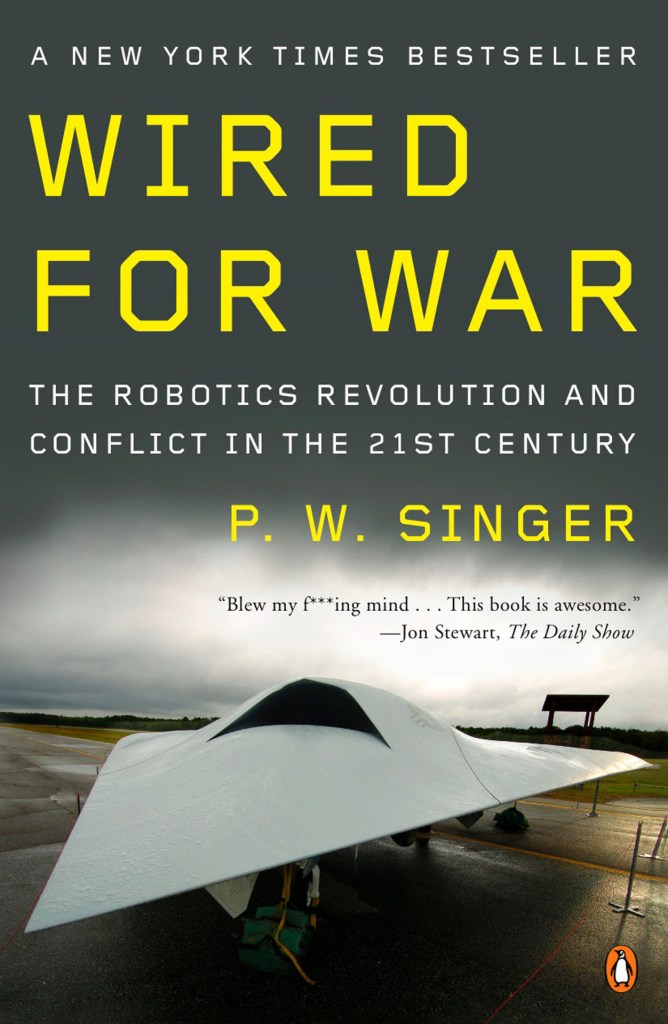

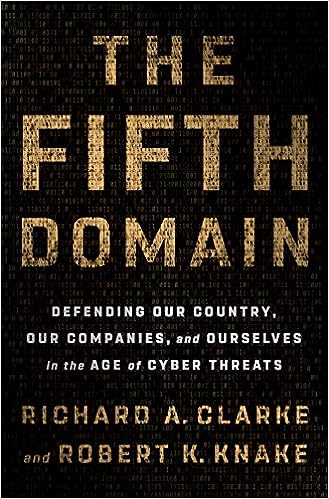
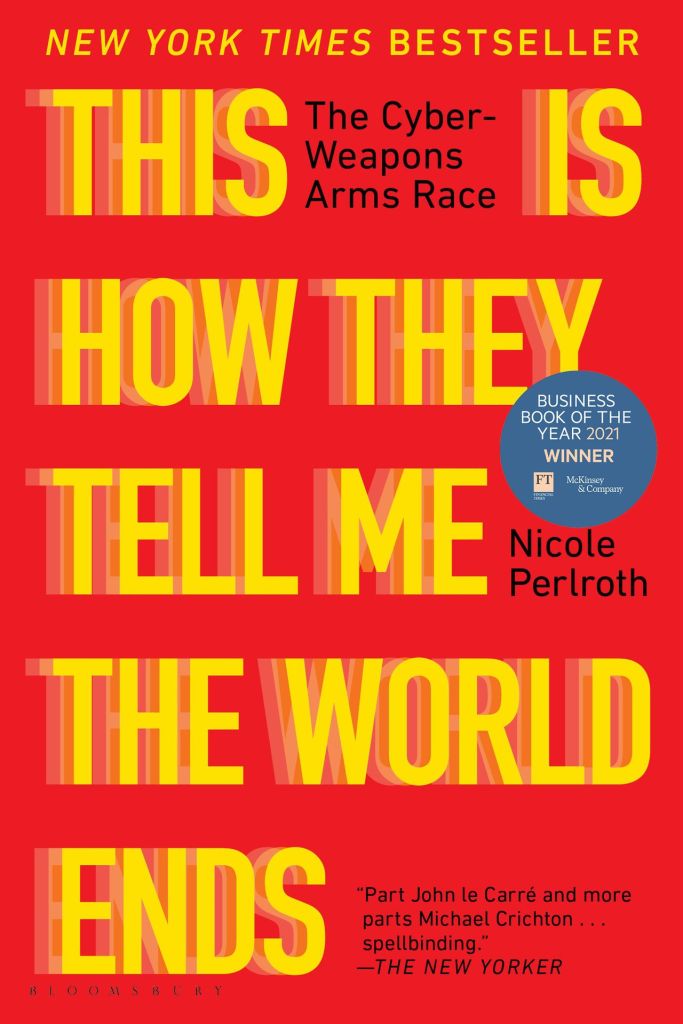
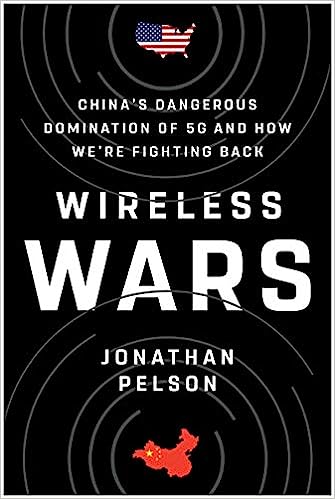
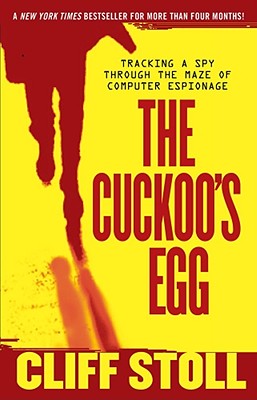
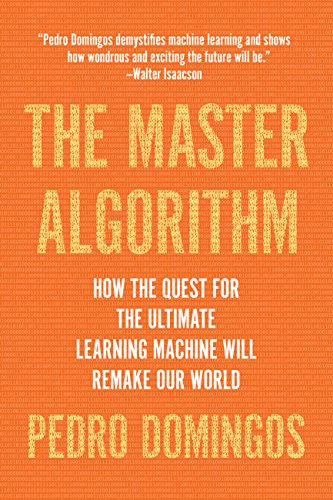









3 responses to “Key Terrain Cyber: Cyberspace Warfare Reading List”
Great compilation of issues that are oblivious to must of the population.
Good list of must reads. A complimentary cross reference might be the Cybersecurity Canon Hall of Fame developed by CyberWire and The Ohio State in 2013.
That’s a good point. It’s a great reference.